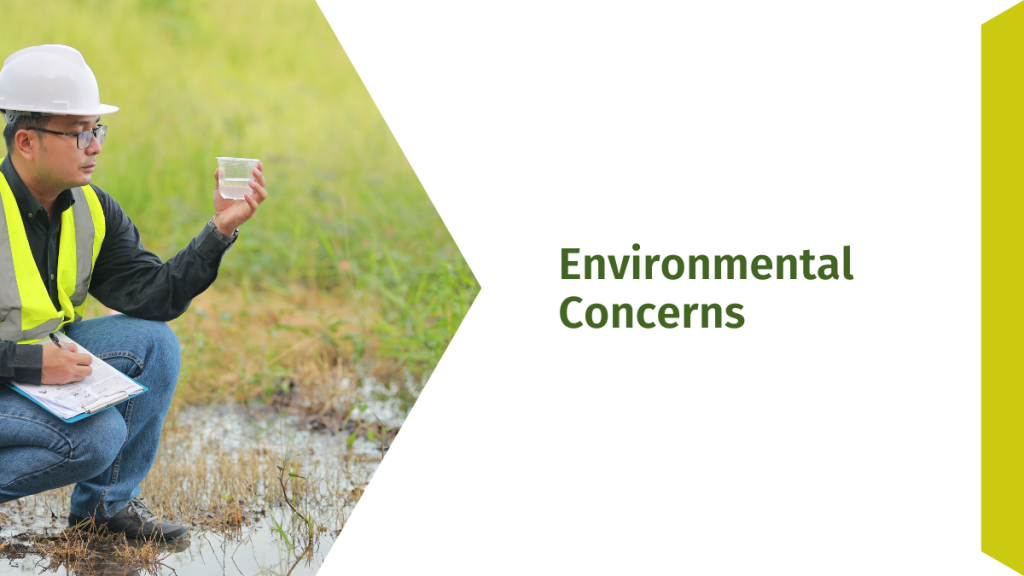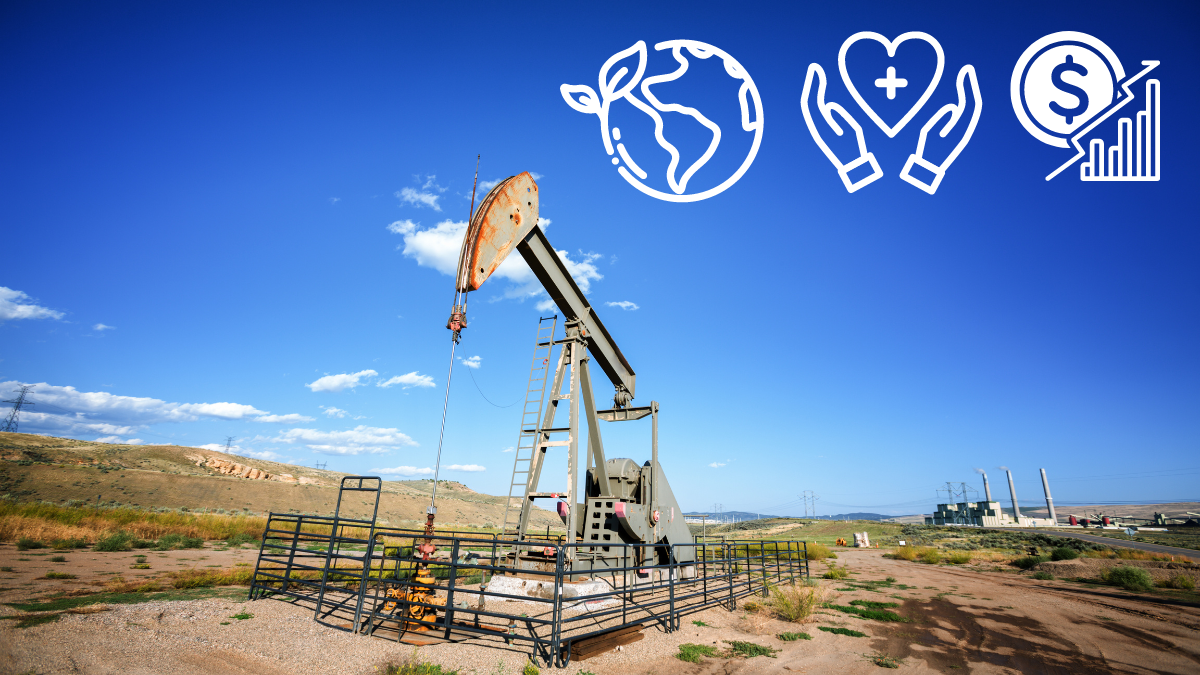Fracking, or hydraulic fracturing, has been a cornerstone of the U.S. energy industry for decades, significantly contributing to the country’s status as a global leader in oil and natural gas production.
However, the practice has sparked intense debate, with strong opinions on both sides.
Proponents argue that fracking has revitalized local economies and enhanced energy independence, while opponents raise concerns about environmental degradation and public health risks.
As the U.S. looks toward the future of its energy policy, the role of fracking remains a critical and contentious issue.
This article will explore the potential trajectory of fracking in the U.S., examining the environmental concerns, economic impacts, and health implications to provide a balanced perspective.
Environmental Concerns
Water Contamination and Usage
One of the most pressing environmental concerns associated with fracking is its impact on water resources.
The process requires large volumes of water mixed with chemicals to fracture underground rock formations and release oil and gas.
Critics argue that this practice can lead to the contamination of groundwater and surface water.
There have been documented cases where fracking fluids or methane have migrated into drinking water supplies, raising alarms about the safety of water in fracking regions.

Moreover, the sheer amount of water required for fracking places additional strain on water resources, particularly in arid regions or during periods of drought.
As water scarcity becomes an increasingly urgent issue globally, the water-intensive nature of fracking could lead to conflicts over resource allocation.
Air Quality and Emissions
Fracking operations also contribute to air pollution, which is another significant environmental concern.
The extraction and processing of natural gas and oil release various pollutants, including :
- Volatile Organic Compounds (VOCs)
- Particulate matter
- Methane—a potent greenhouse gas
Methane leaks during fracking and transportation contribute to climate change, undermining efforts to reduce greenhouse gas emissions.
In addition to methane, fracking sites can emit harmful pollutants that affect local air quality, posing health risks to nearby communities.
As the U.S. continues to address climate change and transition to cleaner energy sources, the environmental impact of fracking will be a crucial factor in shaping its future.
The Dairy Farming Environmental Impact | Climate Change & Sustainability [2024]
Land Use and Ecosystem Disruption
Fracking requires significant land use, leading to habitat disruption and fragmentation.
The construction of roads, drilling pads, and pipelines can alter ecosystems, displace wildlife, and contribute to soil erosion.
In some cases, fracking has been linked to increased seismic activity, as the injection of wastewater into deep underground wells can induce earthquakes.
These environmental consequences are critical considerations for policymakers and industry stakeholders as they weigh the benefits and drawbacks of continued fracking operations.
Economic Impacts
Job Creation and Economic Growth
On the economic front, fracking has been a major driver of job creation and economic growth, particularly in regions with abundant shale formations.
The development of the shale gas and oil industry has provided high-paying jobs and revitalized local economies that were previously struggling.
In states like Texas, North Dakota, and Pennsylvania, fracking has led to an economic boom, with increased tax revenues and investment in infrastructure and services.

However, the economic benefits of fracking are not without challenges.
The industry is highly cyclical, with periods of boom and bust driven by fluctuating oil and gas prices.
This volatility can lead to economic instability in communities that rely heavily on fracking, making long-term planning difficult.
Moreover, the shift toward renewable energy and the growing emphasis on sustainability could impact the future demand for fossil fuels, raising questions about the long-term viability of fracking-dependent economies.
Energy Independence and National Security
Fracking has played a pivotal role in enhancing U.S. energy independence and reducing reliance on foreign oil and gas imports.
This shift has significant implications for national security, as it reduces the country’s exposure to geopolitical risks associated with energy supply disruptions.
The ability to produce vast amounts of domestic oil and gas has given the U.S. greater leverage in international energy markets and has contributed to lower energy costs for consumers.
However, the global energy landscape is changing, with increasing competition from renewable energy sources and a growing focus on decarbonization.
As the world moves toward cleaner energy alternatives, the role of fracking in U.S. energy may evolve, potentially reducing its economic significance over time.
Health Implications
Public Health Risks
The health implications of fracking have been a source of significant concern, particularly for communities located near drilling sites.
Exposure to air pollutants, such as VOCs and particulate matter, has been linked to respiratory issues, cardiovascular problems, and other adverse health effects.
Studies have also suggested a potential association between fracking and increased rates of certain cancers, although more research is needed to establish a definitive link.

Water contamination is another potential health risk, as exposure to fracking chemicals and methane in drinking water can lead to a range of health problems, including gastrointestinal issues and neurological disorders.
The long-term health impacts of living near fracking sites are still not fully understood, and ongoing research is crucial to provide clearer insights into these risks.
Community Impacts
Beyond the direct health effects, fracking can also have broader social and psychological impacts on communities.
The rapid development of fracking operations can lead to increased noise, light pollution, and traffic, disrupting the daily lives of residents.
The influx of workers and the strain on local infrastructure can also contribute to social tensions and changes in community dynamics.
In some cases, communities have reported increased stress and anxiety due to concerns about environmental and health risks associated with fracking.
These psychosocial impacts highlight the need for a holistic approach to assessing the effects of fracking on public health, considering not only the physical but also the mental and social well-being of affected populations.
Why fracking is controversial?
The Way Forward
Regulatory and Technological Innovations
As the U.S. navigates the future of fracking, regulatory frameworks, and technological innovations will play a critical role in addressing the associated environmental, economic, and health challenges.
Stricter regulations on emissions, water usage, and chemical disclosure can help mitigate some of the environmental and health risks.
Additionally, advancements in fracking technology, such as the development of more efficient and less water-intensive methods, could reduce the industry’s environmental footprint.
Balancing Energy Needs with Environmental Sustainability
The future of fracking in the U.S. will likely depend on the ability to balance energy needs with environmental sustainability.

While fracking has been instrumental in driving economic growth and energy independence, the environmental and health concerns cannot be ignored.
As the U.S. and the world transition toward a low-carbon future, the role of fracking may shift, with greater emphasis on minimizing its impact while maximizing the benefits.
Community Engagement and Transparency
Engaging with communities and ensuring transparency in fracking operations are also crucial for the industry’s future.
Providing clear information about the risks and benefits of fracking, as well as involving local residents in decision-making processes, can help build trust and address concerns.
Community engagement is essential for fostering a collaborative approach to managing the impacts of fracking and ensuring that the voices of those most affected are heard.
Conclusion
The future of fracking in the U.S. is at a crossroads, with the need to balance economic, environmental, and health considerations shaping its trajectory.
While fracking has brought significant economic benefits and contributed to energy independence, the associated environmental and health risks require careful management.
As the U.S. moves forward, the industry will need to adapt to changing energy landscapes, regulatory pressures, and societal expectations.
By addressing these challenges and embracing innovation, the future of fracking in the U.S. can be more sustainable and aligned with the broader goals of environmental stewardship and public health protection.
Learn about Nutrient Management | Optimizing Plant Health and Growth.

